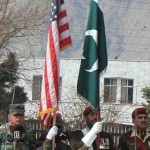In line with our mission to decipher, synthesize, and interpret the emerging geopolitical realities, from time-to-time PoliTact partners with leading global thought centers to understand the multifaceted tangents of the particular themes we are analyzing. The list includes the Middle East Institute, Stimson Center, and Atlantic Council.
We also maintain connections with leading intellectuals from different regions to understand the different political, economic, and security dynamics at play. Due to our holistic approach, PoliTact’s analyses are frequently sought after by the domestic and international news media centers. PoliTact’s assessments feature regularly in the Voice of America Urdu and Pashto services. See below an example of our recent events and collaborations. If you are interested in getting information on our future events, email info@politact.com.




